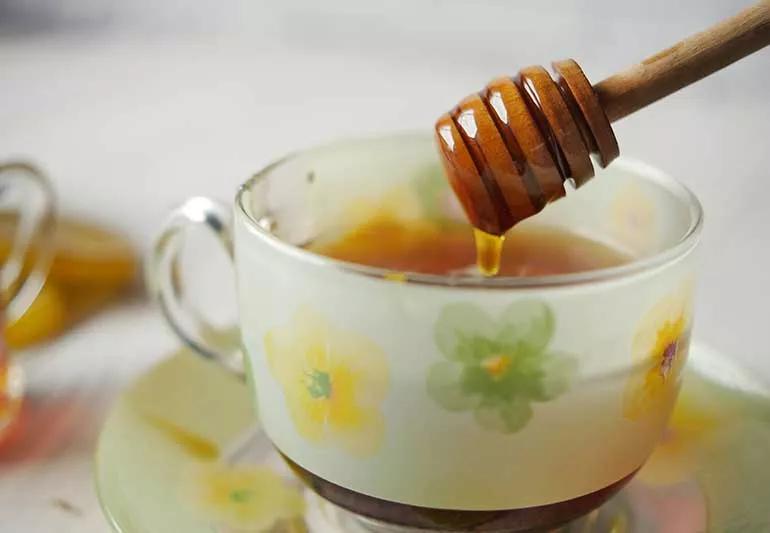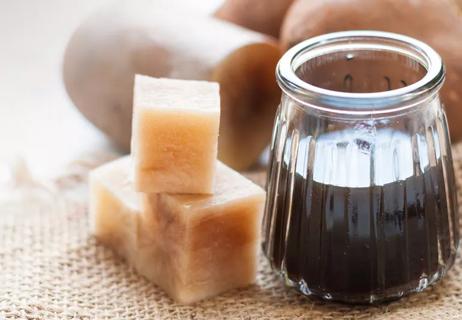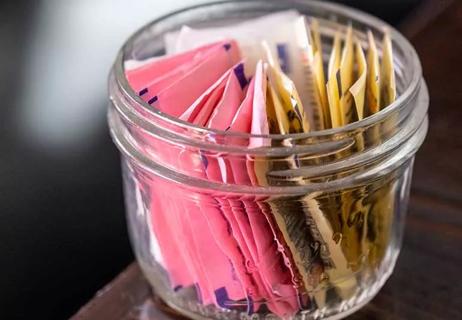Fruit is the best option for a healthy sweetener, but limit refined sugar and artificial sweeteners

Let’s face it: Added sugar really isn’t great for your health. (Sorry.)
Advertisement
Cleveland Clinic is a non-profit academic medical center. Advertising on our site helps support our mission. We do not endorse non-Cleveland Clinic products or services. Policy
An occasional indulgence is understandable. Added sugars are pervasive in our food supply, and a life of over-restriction and denial isn’t sustainable or realistic for a lot of people.
You probably already know that. And you may have thought you found a better solution. Fine, you think, if sugar isn’t all that great for my body, then I’ll get my sweet from artificial sweeteners, honey and other sugar substitutes. Problem solved.
Except, not really. (Sorry, again.)
When it comes to sweeteners, not all sugar substitutes are created equal.
We asked registered dietitian Anna Taylor, RD, LD, to sort it out and share advice for reducing your sugar intake.
Sugar and sweetened foods do more than leave you at risk for a cavity. They can stimulate your appetite, making you even hungrier than you were. And going overboard with the sweet stuff can put you at risk for having obesity, Type 2 diabetes, heart disease, fatty liver disease and more.
Keeping your sugar intake low is an important part of keeping your body healthy.
How much sugar is too much?
The American Heart Association recommends the following sugar limits each day:
Advertisement
“The average American eats about 68 grams of sugar per day,” Taylor says. “That can add up to as much as 28 pounds of body fat per year.”
We’re all human. And cutting out sweets tomorrow probably doesn’t top your to-do list. But lowering your intake can make a big difference. Taylor explains how to go about lowering your sugar consumption in a healthy way.
Coming in at the No. 1 way to sweeten your food and drinks is by using fresh or frozen fruit.
Unlike packaged and baked sweets, which are full of empty calories, fruits are packed with nutritional benefits like fiber, vitamin C and potassium, along with natural sugar. That makes it an ideal sweetener, Taylor says.
Fruits are perfect for getting your fill of vitamins, antioxidants and other good-for-you compounds. So, they’ll add some sweet taste while also benefiting your whole-body health. Win-win.
Try sweetening oatmeal by mixing in a banana or applesauce. Add blueberries to plain Greek yogurt. Sweeten smoothies with frozen fruit. Or infuse your water with a handful of sliced strawberries or a few slices of limes.
Natural sugars include things like raw honey, maple syrup, agave nectar and raw sugar.
The good news is that some natural sweeteners provide a few more nutrients than table sugar.
The bad news? They’re all still forms of sugar and are high in calories.
Any natural sugar should be counted toward your daily sugar intake — just like refined sugar.
“Whether it’s natural or refined, sugar is still sugar and should be limited,” Taylor notes.
On the plus side, raw honey and pure maple syrup both contain antioxidants and have prebiotic oligosaccharides that help feed gut flora. (Translation: They can keep your digestion on track.)
But remember, honey shouldn’t be given to infants under the age of 1. It may contain botulism bacteria spores, a serious health hazard for babies.
As for maple syrup, you want to be choosy. Some commercial maple syrup brands may contain significant amounts of high-fructose corn syrup — not natural sweeteners. Check your food labels for hidden ingredients.
“High-fructose diets are linked to long-term metabolic complications like insulin resistance, belly fat accumulation and high triglyceride levels,” Taylor explains. “So, you’re best off avoiding food with high-fructose corn syrup.”
Agave nectar is another natural option. But it provides fewer nutrients than raw honey or pure maple syrup.
“Agave nectar has the same number of carbohydrates and calories as table sugar, but you get a lot of flavor from a small amount. So, you use less of it to get the same sweetness,” Taylor says. “It’ll still raise your blood sugar. So, if you are living with diabetes, you’ll want to be careful with it.”
Advertisement
The thing to remember about natural sources of added sugar: In terms of your weight and blood sugar, they behave just like sugar. So, you don’t want to overdo it.
“All added sugars are inflammatory. That includes honey and maple syrup,” Taylor clarifies.
Table sugar is inflammatory, high in calories and offers no nutritional benefit.
It’s probably also hiding in some of your favorite foods.
“Most flavored granola bars, yogurts and cereals already contain around a tablespoon of added sugar per serving,” Taylor says. “Many sugary drinks contain more than three tablespoons of added sugar per serving.”
Common artificial sweeteners include things like saccharin (Sweet n’ Low®), aspartame (Equal®) and sucralose (Splenda®).
Artificial sweeteners can sound like a dream come true. All that sweet taste but no actual sugar and no (or very few) calories? Yes, please!
But artificial sweeteners come with concerns of their own.
Like what? Well…
Advertisement
One thing is clear: No sugar or sugar substitute is healthy in excess.
Sugar is addicting. The more sugar you eat, the more you want. But cutting back — and cutting out — added sugar is possible.
How can you break your habit?
“Challenge yourself — your foods and beverages don’t always need to taste sweet,” Taylor encourages.
Start small. You don’t have to go cold turkey to get the benefits of a less-sugared-up diet.
“The goal for most people shouldn’t be to get added sugar intake down to zero. That isn’t realistic,” Taylor states. But recognizing your sugar intake is a start. And knowing where you can turn for a healthier alternative to satisfy the occasional need for sweets can help keep your body healthy. And keep your sweet tooth from taking over.
Advertisement

Sign up for our Health Essentials emails for expert guidance on nutrition, fitness, sleep, skin care and more.
Learn more about our editorial process.
Advertisement

High fructose corn syrup is a common sweetener in packaged foods and can contribute to weight gain and inflammation

Erythritol is found in a range of ‘diet,’ ‘sugar-free’ and ‘keto-friendly’ foods — but research has linked it to heart attack and stroke

Although allulose is an FDA-approved sugar substitute, more research is needed to understand its safety

Studies and the FDA say this herbaceous alternative is safe in moderation, so go ahead and sprinkle away!

Xylitol in processed food can increase risk of heart attack and stroke — but there’s no danger in xylitol in oral care products

All-natural, plant-based and low-calorie, but it can also cause some serious digestive discomfort

Artificial sweeteners may have fewer calories, but they come with plenty of health concerns

Even small moments of time outdoors can help reduce stress, boost mood and restore a sense of calm

A correct prescription helps your eyes see clearly — but as natural changes occur, you may need stronger or different eyeglasses

Both are medical emergencies, but they are very distinct events with different causes